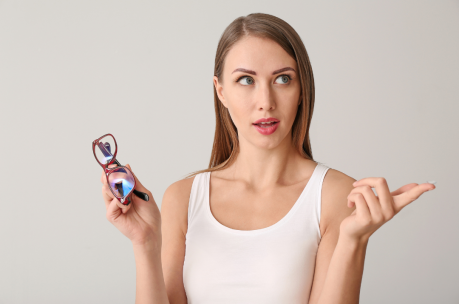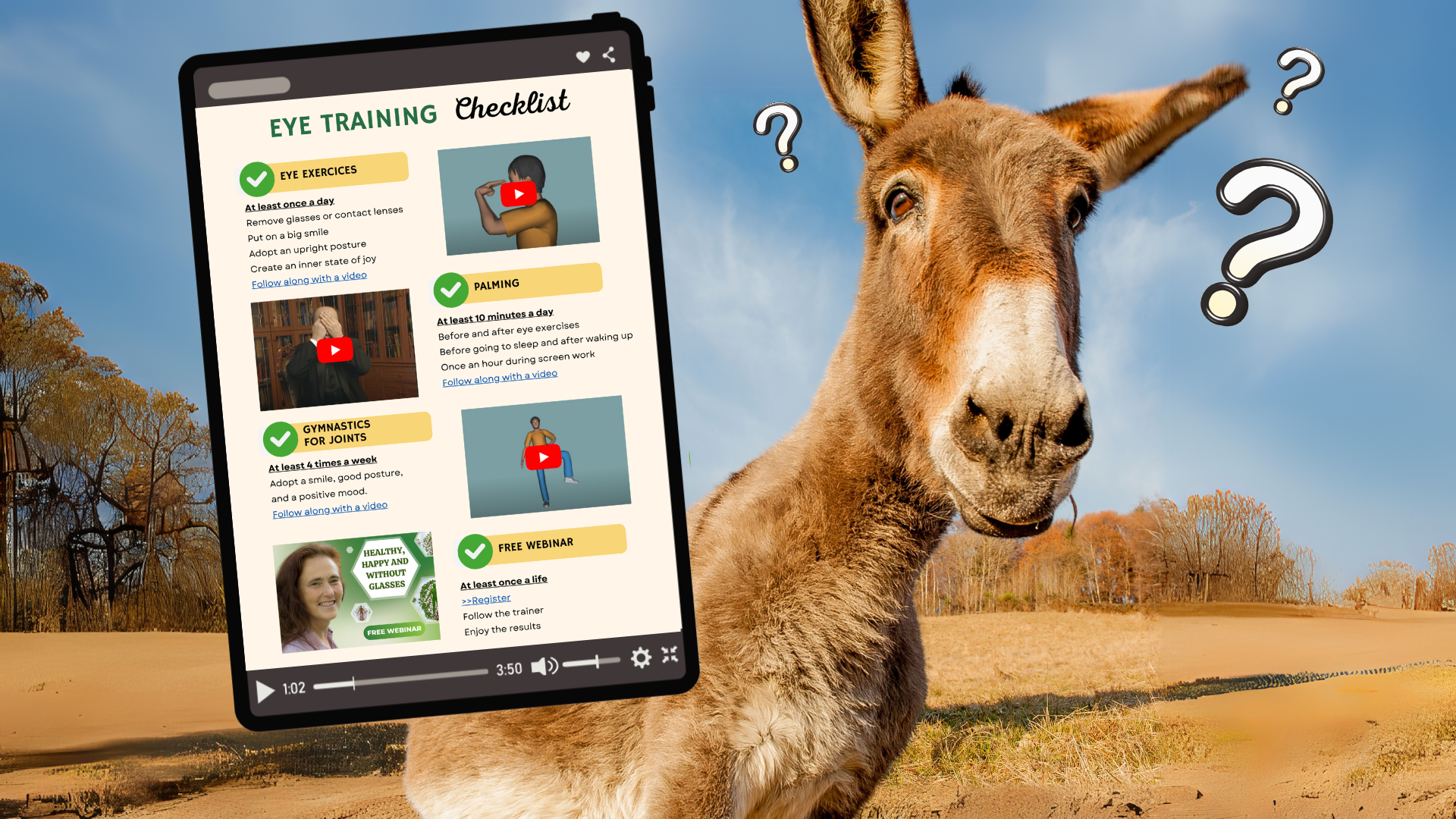- Know
- Love
- Create
Seeing without glasses

Most people are lazy. For them, it is easier to see the world through a mediator, i.e., through glasses, than to engage with a book or even practice (M. Norbekov, “The experience of a fool”).
Improve Vision Without Glasses: The Norbekov Method for Better Sight
Many people rely on glasses to correct their visual impairments. However, according to the Norbekov Method, constant use of glasses can even worsen natural eyesight. But why is this, and how can you improve your vision without glasses? This article explains how to gradually reduce dependence on glasses and strengthen your natural vision.
Glasses: Aid or Obstacle?
At first glance, glasses seem like a relief. Yet they are often seen as a crutch. The Norbekov Method views glasses as an artificial aid that deprives the eyes of their natural ability to regenerate and improve. Those who rely permanently on glasses deny their visual system the chance for self-healing.
Why Glasses Can Be Problematic
-
Changes in eye muscles: Wearing glasses relieves the eye muscles, which can make them lazy.
-
Reduced focusing ability: The natural ability to focus on different distances is limited by glasses.
-
Mental attitude: People often develop the belief, “I can’t see without glasses.”
Gradual Farewell to Glasses
The Norbekov Method allows you to gradually reduce dependence on glasses and strengthen your natural vision. Key steps include:
-
Conscious seeing: Practice mindfulness while looking, deliberately focusing and relaxing your eyes.
-
Eye exercises: Targeted exercises to strengthen eye muscles and improve visual acuity.
-
Mental work: Change your inner attitude by recognizing yourself as a person with clear vision.
-
Reduced glasses use: Wear a weaker pair only when truly necessary, and gradually get used to going without them.
Glasses or Contact Lenses?
For training with the Norbekov Method, we recommend a weaker pair of glasses instead of contact lenses. Why?
-
Contact lenses allow very little natural adjustment of visual sharpness.
-
Slightly weaker glasses challenge the eyes to work actively, supporting the visual training process.
If you wear contact lenses, try to remove them as often as possible and use weaker glasses instead. This optimally promotes the healing process.
Progressive, Distance, and Reading Glasses: Which Is Better?
According to the Norbekov Method, it is advisable to use separate glasses for distance and reading, rather than progressive lenses. Why?
-
Progressive lenses often do the work for the eyes, as they correct vision for all distances (nearsightedness and farsightedness). This can reduce the training effect.
How to proceed:
Distance glasses: Use a distance pair with one diopter less than your usual prescription.
Reading glasses: Use a reading pair with one diopter less for near vision (e.g., for reading).
More information about adjusting your glasses can be found here.
In daily life: Gradually switch from progressive lenses to separate distance and reading glasses. This activates your eyes’ natural adjustment mechanisms.
The Pin-Hole Glasses: A Useful Tool
Pin-hole glasses are a simple yet effective tool for relaxing and strengthening eye muscles. They increase depth of field and encourage targeted eye movements, which can improve vision.
Benefits:
-
Relaxes the eye muscles
-
Promotes eye mobility
-
Supports natural vision
Usage:
-
Wear the pin-hole glasses daily for 10–15 minutes while reading or writing.
-
Use them comfortably without straining your eyes.
Important: Train your eyes regularly, wear weaker glasses, and avoid glasses as often as possible until you can see clearly without them.
Conclusion: Your Path to Natural Vision
Glasses are not an unchangeable fate. With the right approach, you can gradually improve your vision and reduce dependence on glasses. The Norbekov Method provides a proven path back to clear sight without artificial aids.
If you, too, want to see without glasses, you can order the recordings of our Level 1 Seminar “Healthy, Happy, and Without Glasses” in English (including eye training).
You might also be interested in:
The Spine and Vision: What Connection?




